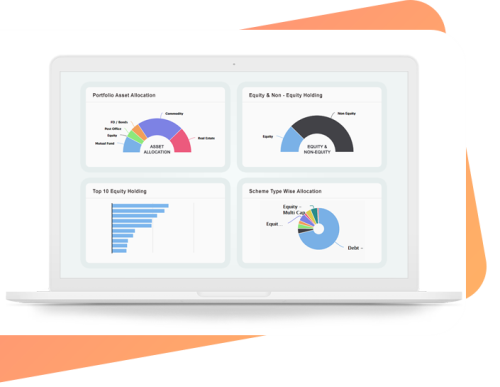In today’s fast-paced, technology-driven world, digital transformation is more than a buzzword; it’s a strategic shift crucial for staying competitive and future-ready. While regions worldwide are already leveraging digital advancements, Libya is now witnessing a rising interest in transforming its business landscape. For Libyan companies, embracing digital transformation isn’t just an option; it’s the pathway to enhancing efficiency, unlocking new revenue streams, and competing globally. This article will explore why digital transformation is the next big step for Libyan companies, focusing on the benefits, trends, and importance of adopting digital transformation services.
Understanding Digital Transformation and Its Relevance in Libya
Digital transformation refers to the integration of digital technology into all areas of a business, resulting in fundamental changes to how businesses operate and deliver value to customers. By digitizing operations, companies can streamline processes, improve efficiency, and develop a culture of innovation. For Libyan businesses, which are navigating a rapidly evolving economy and shifting regulatory environment, digital transformation offers solutions to longstanding challenges and opens doors to unprecedented growth.
Historically, Libya’s economy has been primarily oil-dependent, which, while lucrative, has limited the diversification seen in other regions. However, the last few years have marked a turning point, as more Libyan companies are recognizing the need to modernize their operations. By adopting digital transformation services, these companies are not only future-proofing their operations but also fostering resilience in a global market that increasingly prioritizes digital integration.
The Key Benefits of Digital Transformation for Libyan Businesses
-
Improved Operational Efficiency
One of the primary benefits of digital transformation is enhanced efficiency. By digitizing repetitive tasks, companies can streamline workflows, reduce human error, and cut down on time-consuming processes. In Libya, where businesses often rely on manual systems, the shift to digital tools such as Enterprise Resource Planning (ERP) systems can significantly boost productivity and operational accuracy. For example, automating payroll, inventory management, and customer service processes allows companies to allocate resources toward strategic initiatives rather than administrative tasks.
-
Enhanced Customer Experience
Modern customers expect seamless, personalized experiences across digital platforms. Digital transformation enables companies to collect and analyze data on customer preferences, allowing for targeted marketing and improved customer interactions. In Libya, where the adoption of online services and e-commerce is growing, businesses that invest in digital transformation services are better positioned to attract and retain customers. With the right digital strategies, companies can create tailored experiences that meet the expectations of a more tech-savvy audience.
-
Access to New Revenue Streams
Through digital platforms, Libyan businesses can reach new markets both locally and internationally. E-commerce solutions, online marketplaces, and digital marketing channels offer companies in Libya the opportunity to expand their customer base without the limitations of a traditional brick-and-mortar model. By investing in digital transformation, Libyan companies can explore revenue-generating opportunities that were previously inaccessible.
-
Data-Driven Decision Making
With the rise of data analytics tools, digital transformation enables companies to make informed decisions based on real-time data. This is particularly valuable for Libyan businesses that need to adapt quickly to market changes. Access to data insights allows for a more agile approach, helping companies to identify opportunities, mitigate risks, and make strategic investments.
-
Increased Global Competitiveness
The digital economy is highly competitive, and companies around the world are embracing transformation to stay relevant. By investing in digital transformation services, Libyan businesses can improve their competitive standing on a global scale. With a strong digital foundation, companies can attract international partnerships, improve brand visibility, and compete effectively within the global market.
Key Trends in Digital Transformation Impacting Libyan Companies
-
Artificial Intelligence and Automation
Artificial intelligence (AI) and automation are revolutionizing how businesses operate, from customer service to supply chain management. For Libyan companies, integrating AI solutions can streamline operations, improve decision-making, and reduce costs. Chatbots, for instance, can handle customer inquiries 24/7, freeing up staff to focus on higher-value tasks. Automation tools can also help businesses automate routine functions, allowing teams to focus on innovation and growth.
-
Cloud Computing
Cloud technology allows companies to store and manage data remotely, enabling secure, real-time access to information. For Libyan companies, cloud computing offers an affordable way to access advanced IT infrastructure without the need for costly on-premises systems. The flexibility of cloud services supports remote work, which has become increasingly important for businesses worldwide. By adopting cloud-based digital transformation services, Libyan companies can improve scalability, reduce costs, and enhance collaboration.
-
Cybersecurity Solutions
As digital adoption grows, so does the need for robust cybersecurity. Protecting data and maintaining trust with customers is crucial, especially for businesses in sectors like finance and healthcare. In Libya, where cybersecurity infrastructure is still maturing, companies can leverage digital transformation services to build resilient systems that protect sensitive information. Investing in cybersecurity not only safeguards company data but also strengthens customer confidence.
-
Data Analytics
Data analytics is at the core of digital transformation, enabling companies to gather valuable insights from their operations. For Libyan companies, data analytics can be a game-changer, offering insights into customer behavior, operational efficiencies, and market trends. By investing in data analytics, businesses can make strategic decisions based on accurate, actionable information, helping them respond effectively to market changes and customer demands.
-
Internet of Things (IoT)
IoT connects physical devices to the internet, enabling companies to collect data from machinery, inventory, and other critical assets in real time. For sectors like manufacturing and logistics, IoT is an invaluable tool for monitoring operations and improving efficiency. In Libya, adopting IoT can help companies optimize asset management, reduce costs, and improve product quality.
The Economic Impact of Digital Transformation in Libya
Embracing digital transformation could drive substantial economic benefits for Libya. According to research, countries that invest in digital transformation experience significant GDP growth, largely due to improved productivity and the creation of new business opportunities. If Libyan businesses actively pursue digital transformation, the nation could see improvements in job creation, innovation, and overall economic resilience. Digital transformation also plays a vital role in diversifying Libya’s economy by encouraging the growth of sectors such as tech, healthcare, and e-commerce, which are less reliant on oil.
The World Bank notes that digitization in the MENA region, including Libya, could potentially unlock over $500 billion in economic benefits by 2025. By aligning with this regional momentum, Libyan companies can position themselves as pioneers in the digital landscape and contribute to the country’s broader economic objectives.
Challenges and Solutions in Libya’s Digital Transformation Journey
While digital transformation offers significant benefits, Libyan companies may face challenges in implementing it. These challenges include limited internet infrastructure, insufficient digital literacy, and cybersecurity risks. However, with the support of digital transformation services, companies can overcome these hurdles:
-
Investing in Skills and Training: Companies should invest in training programs that equip employees with the necessary digital skills. By partnering with educational institutions and digital transformation experts, businesses can bridge the skills gap.
-
Building Robust Infrastructure: Investment in reliable internet and technology infrastructure is essential. Collaborating with government bodies and international organizations can help expedite infrastructure development.
-
Adopting Scalable Solutions: Digital transformation is not a one-size-fits-all approach. By working with experienced providers, Libyan companies can adopt scalable solutions that align with their unique needs and budgets.
Take the First Step Toward Digital Transformation Today
As Libyan businesses look to the future, digital transformation will be a critical factor in their ability to thrive in a globalized economy. The potential benefits—from operational efficiency to new revenue streams—are immense, making digital transformation services an essential investment for companies across sectors. If you’re ready to position your business at the forefront of innovation, now is the time to embrace digital transformation and secure a competitive edge.
Get Started Today! Partner with digital transformation experts to create a roadmap tailored to your company’s goals. Don’t let your business fall behind—take the leap toward a digital future and watch your organization unlock new levels of success. Connect with our team Interlibya to discover the digital transformation services that will take your business to the next level.



